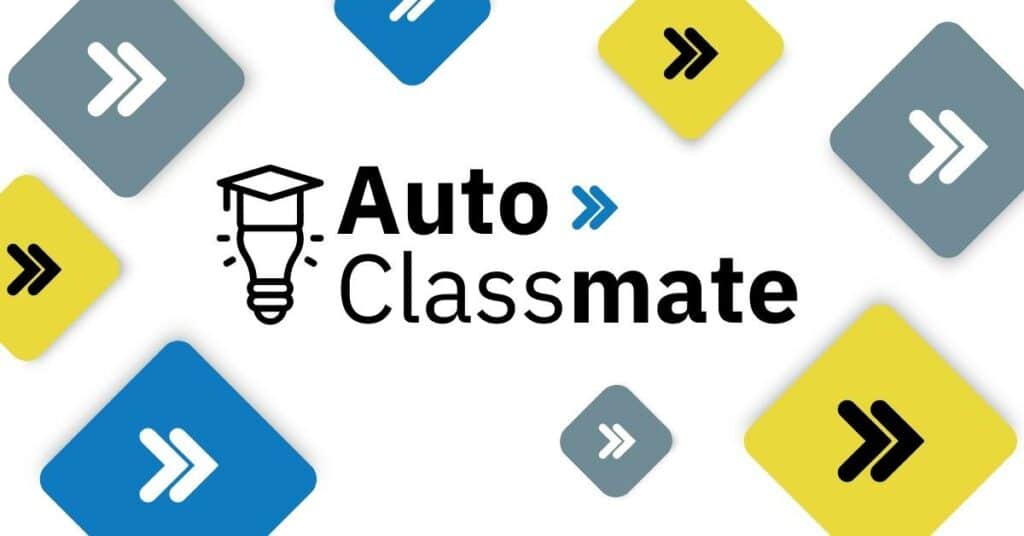The Future (of AI and Education) Is Here…And Educators Must Adapt
While I hate being an alarmist, I have been filled with a deep concern about how Artificial Intelligence (AI) will impact education. When I first learned about the capabilities of certain AI tools, like ChatGPT powered by OpenAI’s GPT-3, I was stunned at the implications for how this will impact education. In less than a minute, ChatGPT can write cohesive, original, and (predominantly) factual paragraphs, essays, reflections, poems, scripts, plays…and the list goes on. As an 8th Grade English Language Arts teacher, I was taken aback by the sheer power and creativity AI tools like ChatGPT can express through writing. The obvious concern that I originally had is that students might start to rely on AI generated responses to complete writing assignments. What is at stake, however, goes far beyond potential rampant, undetected plagiarism. The bigger issue, in my opinion, is that a future (or present) in which students rely on AI-generated responses is a future without learning.
Educators of all levels and all content areas must adapt to the incoming of Artificial Intelligence tools in order to preserve student learning. If we do not act right now and change the very structure of education, the future of learning is at risk. We must change our practices and pedagogical methods so that we know how to ethically respond to and utilize AI-tools. We must change our desire to preserve the same old methods of teaching so that the future of education looks brighter. We must change our tendencies to fear “the new” so that our classrooms become incubators for the future leaders of our world.
An Educator’s Responsibility for Teaching Students About AI
One of the ongoing conversations that I have had with my colleagues concerns who is actually responsible for ensuring that students know how to ethically respond to the incoming of AI in the classroom. While some might argue that educators should simply ban and avoid all talk about Artificial Intelligence for students, I believe that it would be foolish to simply disregard a future reality that is already present. I have personally observed students in my classroom using AI tools for assistance on assignments for English, Math, Science, and Social Studies. If I decided to simply ignore the fact that students are already using these tools, then I am actively choosing to neglect reality. In my opinion, it is the responsibility of educators to teach students about the future of AI in education.
5 Ways Educators Can Be Honest With Students About Artificial Intelligence
I believe that honesty must become the undergirding virtue that educators ought to abide by when it comes to talking to students about Artificial Intelligence. Having those types of honest conversations, however, will be difficult for many educators. Below are 5 ways that educators can be honest with students about AI, its impact on education, and how to use this technology ethically:
- Educate yourself on what AI is and how it works. AI is a complex and rapidly changing field, and it is important to stay up to date on the latest advancements. By understanding the basics of AI, educators will be better prepared to discuss this technology with their students. Additionally, it is important to be aware of the ethical implications of AI, such as data privacy, the potential for biased algorithms, and the challenges of using AI to automate decisions.
- Create an open dialogue with students about AI. Instead of lecturing students about AI, create an open and honest dialogue that encourages students to ask questions and voice their opinions. By doing this, educators can help students understand the complexity of AI and its implications for society.
- Encourage students to be critical thinkers. AI is only as good as the data that is used to train it. Educators should encourage students to think critically about the data that is used to train AI models, and to question how it might be biased. Additionally, educators should teach students how to identify bias in AI models and how to create systems that are more equitable and fair.
- Stress the importance of ethical decision making. AI can be used for good, or it can be used for unethical purposes. Educators should stress the importance of ethical decision making when dealing with AI, and they should also teach students how to use AI responsibly. This includes teaching them the importance of protecting user data, being aware of algorithmic bias, and understanding the potential consequences of using AI in decision-making.
- Foster an environment of exploration and experimentation. AI is a rapidly evolving field, and it is important to give students the opportunity to explore and experiment with different technologies. By giving students the chance to experiment with AI, they will be able to gain a better understanding of how it works and how it can be used to solve real-world problems. Additionally, this will help students understand the ethical implications of using AI, and it will give them the opportunity to come up with innovative solutions to complex problems.

In the spirit of honesty, the 5 ways listed above were completely generated by AI. I decided to include those 5 reasons in this blog post because I believe that demonstrating the potential of these tools as we are discussing them is one of the best ways to be honest about the future of AI and education. To place myself in dialogue with those generated responses listed above, below you will find my 5 (completely human-generated) additions/extensions of the 5 ways listed above:
- Educate yourself on what AI is and how it works. It is actually impossible to teach others about the future of AI and education unless we are first educated on those topics. We must learn and stay up-to-date with the latest developments in AI technology so that we can anticipate how AI might impact education.
- Create an open dialogue with students about AI. Rather than fearing what could happen if students begin using Artificial Intelligence, try asking questions about what students think about AI. As you educate yourself on the topic, share your discoveries with your students and ask them to share what they are experiencing. If educators force conversations about AI to become taboo, then we will fail to shape our culture in a positive manner.
- Encourage students to be critical thinkers. There will always be a risk to allow AI to think on our behalf. Empowering learners to think critically must become a high priority in our classrooms. As we adapt to the incoming of AI within education, we must open up spaces that encourage critical thinking so that we constantly self-assess the technology we are creating. And, as mentioned above: AI is truly only as good as the data we feed it. As a result, we must think critically about the data we are feeding our students, ourselves, and our technology.
- Stress the importance of ethical decision making. I have already witnessed my 8th grade students attempt to use AI to plagiarize essays, complete assignments, and find entertainment. I have worried that not being honest with them about AI right now is causing harm. Unless I am having honest conversation with students about how we can and should use AI, then we will never grow together towards a more ethical standard.
- Foster an environment of exploration and experimentation. While this suggestion very well may cause many educators to experience crippling anxiety, I believe that genuinely exploring and experimenting with AI alongside students might be the most honest strategy we could adopt at the present time. Showing them the power of AI tools right now and having those open dialogues in the present can open up spaces to create the more ethical outcomes we all desire.
Being Honest With My Students Begins With Me
Over the past few months, I have used AI tools to help me perform the following tasks:
- Create more engaging learning activities within lesson plans
- Create interactive vocabulary quizzes based on State Standards
- Write songs that incorporate vocabulary words my students are learning
- Project the outcomes of lesson plans and create solutions to prevent student misunderstandings
- Edit and rephrase a lesson plan to add clarity for students
- Translate instructions for activities into other languages
Rather than keeping this fact a secret, why should I not tell my students about how I am using AI in the classroom? Why not tell them how difficult being an educator can be and how AI can actually improve my ability to be an educator? Why not use feedback from my students to see how I can be a better educator by using AI? If I want to cultivate a classroom culture of honesty concerning AI and education, then I must first be honest with myself and my young learners. How will you be honest with your students about the future of AI and education?

